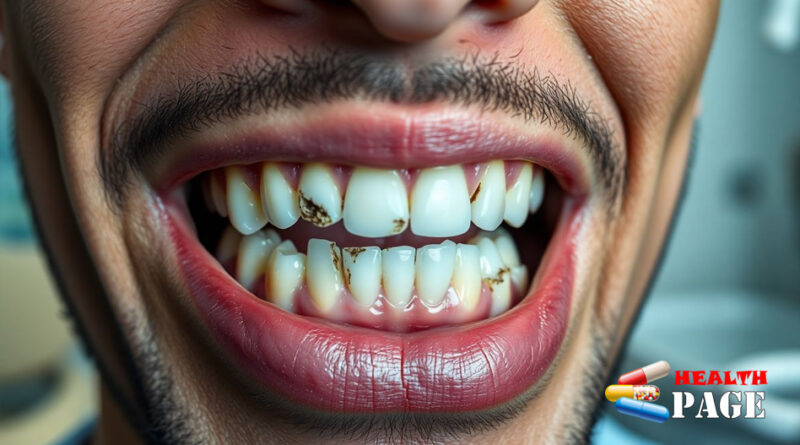Composite Bonding Ruined My Teeth: Understanding the Risks and Realities
Getting a beautiful smile is a dream for many. More people are turning to cosmetic dental procedures like composite bonding to improve their teeth. But what happens when these treatments go wrong? Sometimes, composite bonding can lead to serious damage instead of the perfect smile. Knowing the risks can help you make better choices and protect your dental health. Let’s know composite bonding ruined my teeth.
What Is Composite Bonding? An Overview of the Procedure
Definition and Process of Composite Bonding
Composite bonding uses a tooth-colored resin material to fix chips, cracks, or gaps. The dentist applies the resin in layers, then hardens it with a special light. The result? A smoother, whiter, and more beautiful tooth surface. The entire process usually takes about an hour per tooth. And in many cases, it can be done without anesthesia.
Popularity and Use Cases
More adults and teens want quick fixes for imperfect teeth. Composite bonding can hide stains, fill chips, close gaps, and reshape teeth. It’s a popular choice because it’s fast and less expensive than crowns or veneers. Many see it as a simple way to boost their confidence.
Benefits of Composite Bonding
- Cost less than veneers and crowns
- Less invasive with minimal pain
- Usually completed in a single visit
- Can be easily repaired or adjusted
But, while it’s popular, it’s not foolproof. Problems can happen if it’s not done properly or if the patient doesn’t care for their teeth afterward.
Common Causes of Composite Bonding Compromising Dental Health
Poor Technique and Practitioner Skill
The biggest risk? Your dentist’s skill. Only experienced dentists can shape and bond resin properly. Poor application can lead to uneven surfaces, gaps, or damage to the tooth structure. An untrained hand might cause cracks or weaken the tooth, making future repairs harder.
Material Quality and Durability Issues
Not all composite resins are equal. Cheaper or low-quality materials may not last long. They tend to chip, stain, or break more easily. Using poor materials increases the chance your bonding will fail and cause damage.
Inadequate Oral Care and Maintenance
Once bonded, your teeth need good care. Failing to brush, floss, and attend regular check-ups can lead to decay underneath the bonding. Neglecting oral hygiene can cause the bonded tooth to weaken or even develop infections.
Misaligned Expectations and Overuse
Some people get multiple procedures without understanding the risks. Over-bonding or unnecessary treatments can weaken teeth or create an uneven bite. This might cause wear or damage over time. Always discuss your goals with your dentist to avoid overdoing it.

Real-World Cases of Dental Damage from Composite Bonding
Case Study: Chipped or Cracked Tooth Due to Poor Bonding
A woman got bonding on her front tooth but didn’t realize a small crack was forming. A hard bite caused the bonded layer to chip off, exposing the vulnerable tooth beneath. The damage made her need more extensive repairs.
Case Study: Gum Recession and Tooth Sensitivity
An older man’s dentist bonded his molars without checking his gum health. Over time, the bonding caused gum recession, leading to tooth sensitivity and even minor infections. This shows how improper bonding can hurt gums and teeth at once.
Case Study: Total Failure of Bonded Teeth
In another story, a teenager’s bonding kept chipping until the entire tooth structure was compromised. The resin failed to protect the tooth, prompting a root canal and crown. Poor bonding can sometimes result in complete breakdown of the tooth.
Recognizing When Composite Bonding Has Ruined Your Teeth
Signs and Symptoms
- Cracks, chips, or fractures that worsen
- Increased tooth sensitivity and pain
- Discoloration or gaps forming around the bonded area
- Loose or falling-off bonding pieces
When to Seek Specialist Advice
If you notice any of these signs, see a dentist immediately. An early visit can save your natural teeth and prevent more damage. Don’t wait until pain worsens or the damage spreads.

Preventive Measures and Best Practices
Choosing a Qualified Dentist
Always research credentials and reviews. An experienced cosmetic dentist knows how to do bonding safely. Ask about their training, certifications, and work samples.
Ensuring Proper Technique and Material Selection
Ask questions before the procedure. Which composite resin will they use? How do they ensure proper bonding? A good dentist will explain their process and why they choose specific materials.
Maintaining Good Oral Hygiene
Brush twice daily, floss regularly, and see your dentist for cleanings. Clean teeth help bonded areas last longer and stay healthy.
Regular Dental Check-Ups
Routine exams can spot early signs of damage or decay. Early intervention keeps your natural teeth safe and repairs simple.
Treatment Options for Damaged or Ruined Teeth Post-Bonding
Repair and Rebonding
Small chips or cracks can often be fixed with new composite. But if damage is severe, rebonding might not be enough. Your dentist will recommend the best approach.
Alternative Solutions
Crowns and veneers last longer and are more durable. They are often better choices if bonding fails or causes damage. These options protect your tooth and improve appearance.
Preventing Future Damage
Avoid biting hard objects like ice or pens. Don’t use your teeth as tools. Limit sugar and acids that can weaken teeth. Keeping your smile safe requires smart habits.
Expert Insights and Recommendations
Leading cosmetic dentists warn that bonding is not permanent. “It’s a great initial fix, but if not done carefully, it can do more harm than good,” says Dr. Jane Smith, a cosmetic dentist. Dental health organizations agree that proper technique, materials, and aftercare are crucial for success.
Key Takeaways
- Always choose a skilled, experienced dentist.
- Pay attention to early signs of damage.
- Maintain good oral care and visit your dentist regularly.
- Consider long-term solutions like crowns or veneers if necessary.
- Educate yourself about risks and proper care—your smile depends on it.
Conclusion
Composite bonding can transform your smile, but it’s not without risks. When done poorly or neglected afterward, it can ruin your teeth instead of enhancing them. Making a fully informed choice starts with understanding the potential pitfalls. Always work with a qualified professional and stick to good oral habits. Your dental health and your smile are worth it. If you’re considering bonding, consult your dentist for personalized guidance and safer options. Your teeth deserve the best care possible.


